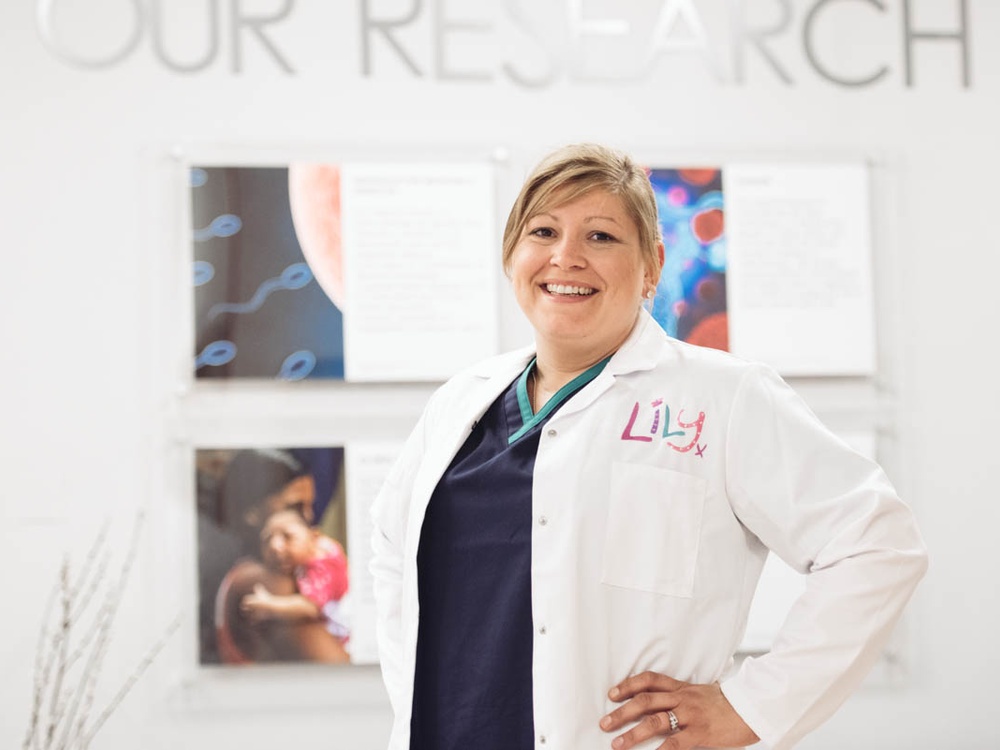When someone is diagnosed with a mitochondrial disease it's natural they will have a lot of questions and concerns, so a big part of my job is to provide personal support. It's about having someone who's directly contactable to offer advice and assistance, or maybe to be there and listen. You have to be strong emotionally, because some of it is really bad news. You have to be able to find the best out of the worst situations, be good at listening and understanding, and also be organised and approachable.
I try to personally introduce myself to people in clinic, so they can put a face to the name when they call or email me. Having that real human connection is important, because often people are dealing with very difficult and emotionally challenging situations. Or they might have questions about their condition that they don't feel they can directly ask a doctor, or are perhaps hesitate to bring up in a clinical setting.
Currently there is very little we can offer patients in terms of effective treatment. The medicines we have available are only offered in the hope that they might improve a specific mitochondrial disease symptom, and even then there are few guarantees that something will work. So it's about working to make life as comfortable as possible for patients, and making sure people aren't left to manage alone. A lot of what we do is symptom management, fatigue management, trying to improve quality of life.
We are developing a database of every person with a confirmed diagnosis of mitochondrial disease. The idea is that patients register on the database, and when new research comes up that relates to their phenotype they can volunteer to donate samples, provide information about their condition or take part in clinical trials. Researchers can use the system to search specific patient groups based on age, gender or phenotype. With all that information to hand it makes it much easier for patients to sign up to clinical research projects and contribute to research that could help families in years to come.
Families are knocking down the door to sign up, even though they know any research we do is unlikely to help them personally. We have to make clear to people there is no miracle cure, but they still want to do all they can if there's a chance it could one day help others in their situation. If you want to take a blood sample they would give you ten pints if you asked for it. They are willing to do anything, and it's always to help others.
Patients are the experts and we are learning from them all the time. Mitochondrial disease affects people in very different ways, so often they will know more about their specific condition than you. This is why building links between patients, doctors and researchers is so important, and why much of what we do is dictated by the needs of the patients. We see developing the patient cohort as paramount to making a difference in the long term; the system has to be up to date, it has to meet ethical protocol and be designed in a way that works well for patients and researchers.
One lady on the database is having a baby and has donated the placenta for research. She has mitochondrial disease, so we'll test the placenta to see if the baby has been affected, and hopefully it will help researchers find out more about how mitochondrial disease is passed on from mother to baby. That's just one example of how patients, clinicians and researchers are working together. The Lily Foundation has been a big part of efforts to achieve this.
It's a privilege to be part of something like this, and very rewarding. The families we work with are so thankful for anything you can do, even if it's just listening. The mitochondrial disease community is a very close-knit family, everyone looks out for one another and is keen to help however they can, so it's an amazing thing to be part of. Even though the disease is classified as rare, when you talk to people affected by it on a daily basis it doesn't seem that way at all. There are thousands of people living with these conditions every day.
My job is a new and expanding role, so there is still lots to learn. But it's exciting and wonderful, and I'm looking forward to seeing what it will happen. At the moment the database is nationwide, but the hope is that it could grow to be worldwide. I can't wait to find out how it develops and do my best to make it into a great service.

